Dish Soap and Vinegar Cleaner: Your Secret Weapon for a Sparkling Home, Naturally!
Ever feel like you’re battling a never-ending war against grime and gunk in your home? I know I have! We’re constantly bombarded with expensive, chemical-laden cleaning products promising miraculous results. But what if I told you the solution was already sitting in your kitchen pantry? For generations, resourceful homemakers have relied on the power of simple, natural ingredients to keep their homes clean and fresh. Think back to your grandmother’s cleaning rituals – chances are, vinegar and dish soap played a starring role!
This dynamic duo isn’t just an old wives’ tale; it’s a surprisingly effective and eco-friendly cleaning solution. In a world increasingly concerned about the impact of harsh chemicals on our health and the environment, embracing DIY cleaning methods like this dish soap and vinegar cleaner is more important than ever. Not only is it gentler on your skin and your home, but it’s also incredibly budget-friendly. Who doesn’t love saving money while creating a healthier living space?
In this article, I’m going to share my favorite DIY tricks and hacks for using dish soap and vinegar cleaner to tackle everything from stubborn grease to grimy bathroom surfaces. Get ready to ditch the harsh chemicals and discover the simple, effective power of these everyday ingredients!
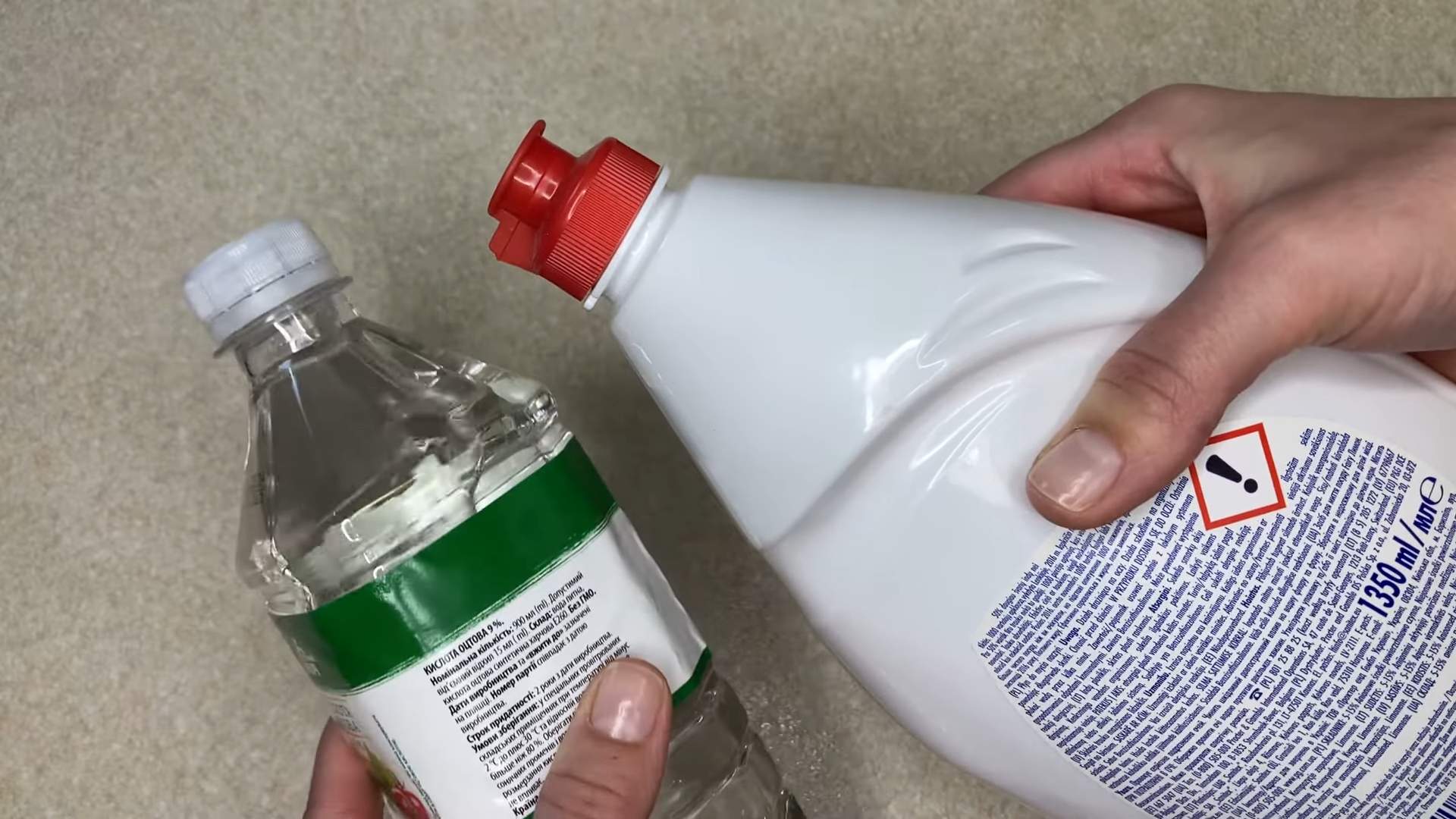
DIY All-Purpose Dish Soap and Vinegar Cleaner: A Sparkling Home Awaits!
Hey there, fellow cleaning enthusiasts! Are you tired of harsh chemicals and expensive cleaning products? I know I was! That’s why I’m so excited to share my go-to DIY all-purpose cleaner: a simple yet incredibly effective combination of dish soap and vinegar. This dynamic duo can tackle grime, grease, and everyday messes all over your house, and the best part? It’s super affordable and eco-friendly!
Why Dish Soap and Vinegar?
Before we dive into the how-to, let’s talk about why this combination works so well.
* Vinegar (Acetic Acid): Vinegar is a natural disinfectant and deodorizer. Its acidity helps to break down grease, dissolve hard water stains, and kill bacteria. It’s also a fantastic odor neutralizer, leaving your home smelling fresh and clean.
* Dish Soap: Dish soap is a surfactant, meaning it reduces the surface tension of water, allowing it to spread more easily and lift away dirt and grime. It’s especially effective at cutting through grease and oil.
Important Note: While vinegar and dish soap are generally safe, never mix vinegar with bleach. This combination creates toxic chlorine gas, which is extremely dangerous.
What You’ll Need
Here’s a quick list of the supplies you’ll need to whip up your own batch of this amazing cleaner:
* White vinegar
* Dish soap (I prefer a clear, unscented variety to avoid any unwanted color or fragrance clashes, but any dish soap will work)
* Spray bottle (a clean, empty one, of course!)
* Water (optional, for dilution)
* Essential oils (optional, for added fragrance – lemon, lavender, and tea tree are great choices)
* Measuring cup or spoons (optional, but helpful for precise measurements)
Making Your Dish Soap and Vinegar Cleaner: Step-by-Step
Okay, let’s get down to business! Here’s how to make your own all-purpose cleaner:
1. Prepare Your Spray Bottle: Make sure your spray bottle is clean and dry. Any residue from previous cleaners could interfere with the effectiveness of your new concoction.
2. Add Vinegar: Pour 1 cup of white vinegar into the spray bottle.
3. Add Dish Soap: Now, add 1 tablespoon of dish soap to the vinegar. It’s important to use the right ratio. Too much dish soap can leave a sticky residue, while too little might not be as effective at cleaning.
4. Optional: Add Water (for Dilution): If you prefer a less concentrated cleaner, you can add 1 cup of water to the mixture. This is especially helpful for delicate surfaces or if you’re sensitive to the smell of vinegar.
5. Optional: Add Essential Oils (for Fragrance): If you want to add a pleasant scent to your cleaner, add 10-20 drops of your favorite essential oil. Lemon, lavender, tea tree, and eucalyptus are all great options. Be sure to use pure essential oils for the best results.
6. Close and Shake Gently: Secure the spray bottle lid tightly and gently shake the mixture to combine all the ingredients. Avoid shaking too vigorously, as this can create excessive bubbles.
7. Label Your Bottle: This is a crucial step! Clearly label your spray bottle with “Dish Soap and Vinegar Cleaner” so you don’t accidentally mix it up with other cleaning products.
Using Your Dish Soap and Vinegar Cleaner: A Guide to Sparkling Surfaces
Now that you’ve made your cleaner, let’s put it to work! Here’s how to use it effectively on various surfaces around your home:
1. Spray the Surface: Lightly spray the surface you want to clean with your dish soap and vinegar mixture.
2. Let it Sit: Allow the cleaner to sit on the surface for a few minutes (2-5 minutes is usually sufficient) to allow the vinegar and dish soap to break down dirt and grime. For tougher stains, you might need to let it sit for a bit longer.
3. Wipe Clean: Use a clean cloth, sponge, or paper towel to wipe the surface clean. For stubborn messes, you might need to scrub a little.
4. Rinse (Optional): If you’re concerned about residue, you can rinse the surface with clean water after wiping. This is especially helpful for surfaces that come into contact with food.
Where to Use Your Dish Soap and Vinegar Cleaner
This cleaner is incredibly versatile and can be used on a wide variety of surfaces. Here are some of my favorite uses:
* Kitchen Counters: This cleaner is perfect for wiping down kitchen counters after meal prep. It effectively removes food splatters, grease, and grime.
* Sinks: Use it to clean and disinfect your kitchen and bathroom sinks. It helps to remove soap scum, water stains, and food debris.
* Stovetops: This cleaner can help to cut through grease and grime on your stovetop. Be sure to let it sit for a few minutes before wiping clean.
* Microwaves: Spray the inside of your microwave with the cleaner and let it sit for a few minutes. Then, wipe clean with a damp cloth. This will help to loosen food splatters and make cleaning a breeze.
* Bathroom Tiles: This cleaner is great for cleaning bathroom tiles and grout. It helps to remove soap scum, mildew, and water stains.
* Shower Doors: Use it to clean shower doors and remove soap scum and water spots.
* Toilets: This cleaner can be used to clean and disinfect your toilet bowl and seat.
* Floors (Hard Surfaces): Dilute the cleaner with water and use it to mop hard surface floors like tile, linoleum, and hardwood. Be sure to test it in an inconspicuous area first to ensure it doesn’t damage the finish.
* Windows and Mirrors: This cleaner can be used to clean windows and mirrors, leaving them streak-free. Just be sure to use a clean, lint-free cloth.
* Appliances (Exterior): Use it to wipe down the exterior of your appliances, such as your refrigerator, dishwasher, and oven.
Surfaces to Avoid
While this cleaner is generally safe for most surfaces, there are a few exceptions. Avoid using it on:
* Marble and Granite: The acidity of vinegar can damage natural stone surfaces like marble and granite.
* Waxed Furniture: Vinegar can strip the wax from waxed furniture.
* Unsealed Grout: Vinegar can damage unsealed grout.
* Electronics: Avoid spraying electronics directly with this cleaner. Instead, spray a cloth and then wipe the surface.
Troubleshooting Tips
* Sticky Residue: If you’re experiencing sticky residue after using the cleaner, you’re likely using too much dish soap. Try reducing the amount of dish soap in your next batch.
* Strong Vinegar Smell: If you find the vinegar smell too strong, you can dilute the cleaner with more water or add more essential oils. The vinegar smell will dissipate quickly after cleaning.
* Cloudy Solution: If your cleaner appears cloudy, it’s likely due to the type of dish soap you’re using. This doesn’t affect the cleaner’s effectiveness.
Storage
Store your dish soap and vinegar cleaner in a cool, dark place away from direct sunlight. It should last for several months.
Safety Precautions
* Keep out of reach of children and pets.
* Avoid contact with eyes. If contact occurs, rinse thoroughly with water.
* Test the cleaner in an inconspicuous area before using it on delicate surfaces.
* Never mix vinegar with bleach.
Final Thoughts
I hope you found this DIY guide helpful! This dish soap and vinegar cleaner has been a game-changer for me, and I’m confident it will be for you too. It’s a simple, affordable, and effective way to keep your home sparkling clean without harsh chemicals. Happy cleaning!
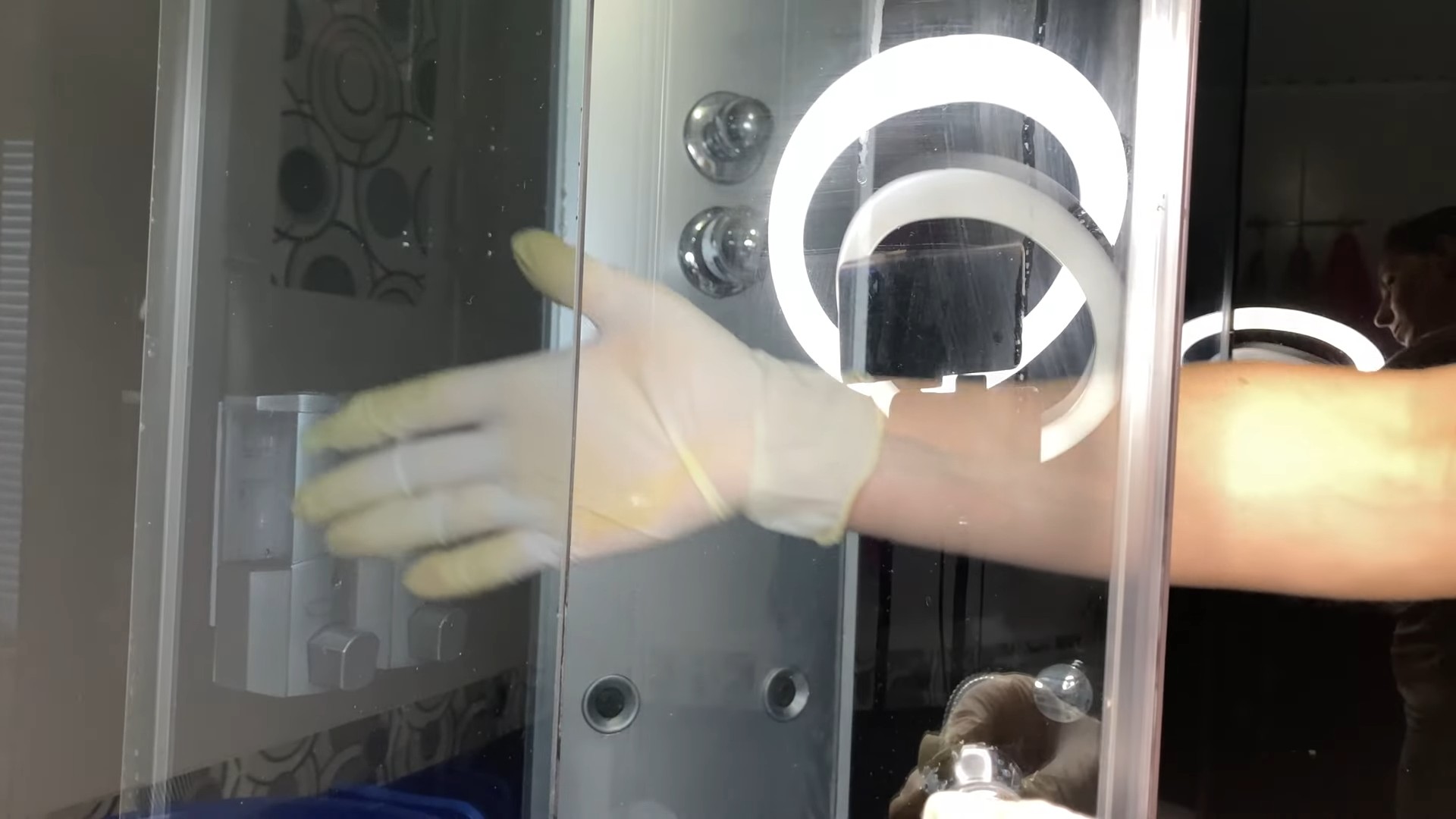
Conclusion
So, there you have it! Creating your own Dish Soap and Vinegar Cleaner is not just a cost-effective alternative to store-bought cleaners; it’s a powerful, versatile, and surprisingly simple way to tackle grime and grease throughout your home. We’ve explored the science behind why this dynamic duo works so well, highlighting the grease-cutting power of dish soap and the disinfecting properties of vinegar. But more than just understanding the “why,” we’ve provided you with a clear, concise recipe and practical tips to ensure your success.
What truly sets this DIY cleaner apart is its adaptability. Unlike many commercial cleaners laden with harsh chemicals and artificial fragrances, the Dish Soap and Vinegar Cleaner allows you to customize the scent and strength to suit your preferences and needs. Add a few drops of your favorite essential oil – lavender for a calming aroma, lemon for an extra boost of cleaning power, or tea tree for its antibacterial properties – to create a truly personalized cleaning experience.
Beyond the basic recipe, consider these variations to tailor the cleaner to specific tasks:
* For stubborn stains: Pre-treat the area with a paste of baking soda and water before spraying with the Dish Soap and Vinegar Cleaner. Let it sit for a few minutes, then scrub gently.
* For glass and mirrors: Dilute the mixture further with water to prevent streaking. Use a microfiber cloth for a sparkling, streak-free finish.
* For floors: Add a small amount of the cleaner to a bucket of warm water. Always test in an inconspicuous area first to ensure it doesn’t damage the finish.
The benefits of switching to a homemade Dish Soap and Vinegar Cleaner extend beyond just saving money and reducing your exposure to harsh chemicals. You’re also contributing to a more sustainable lifestyle by reducing plastic waste and minimizing your environmental footprint. Every bottle of homemade cleaner you create is one less plastic bottle destined for the landfill.
We understand that switching to a DIY cleaner might seem daunting at first, but we encourage you to give it a try. The simplicity of the recipe and the effectiveness of the results will likely surprise you. Plus, the satisfaction of creating something yourself, knowing exactly what ingredients are going into it, is an added bonus.
Don’t just take our word for it! We’re confident that once you experience the cleaning power of this simple solution, you’ll be hooked. We encourage you to experiment with different variations, find your favorite scent combinations, and discover new ways to use this versatile cleaner around your home.
We’d love to hear about your experiences! Share your tips, tricks, and success stories in the comments below. Let us know how you’re using your Dish Soap and Vinegar Cleaner and what you’ve found it to be most effective for. Your feedback will not only help us improve this recipe but also inspire others to embrace the power of DIY cleaning. So, grab your dish soap, vinegar, and a spray bottle, and get ready to experience the cleaning revolution!
Frequently Asked Questions (FAQ)
Is Dish Soap and Vinegar Cleaner safe to use on all surfaces?
While the Dish Soap and Vinegar Cleaner is generally safe for most surfaces, it’s always a good idea to test it in an inconspicuous area first, especially on delicate or porous materials like marble, granite, or waxed wood. The acidity of vinegar can potentially damage these surfaces over time. Avoid using it on natural stone countertops, as it can etch the surface. For these surfaces, stick to pH-neutral cleaners specifically designed for them. When in doubt, consult the manufacturer’s instructions for your specific surface.
What type of dish soap and vinegar should I use?
For dish soap, any standard liquid dish soap will work. Choose one that you like the scent of, or opt for a fragrance-free option if you’re sensitive to smells. Avoid using dish soap that contains bleach or other harsh chemicals, as these can react negatively with the vinegar. As for vinegar, white distilled vinegar is the most common and readily available option. It’s also the most effective for cleaning due to its higher acidity. You can use apple cider vinegar as an alternative, but it may not be as potent and could leave a slight residue.
How long does the Dish Soap and Vinegar Cleaner last?
The Dish Soap and Vinegar Cleaner doesn’t have a specific expiration date, but it’s best to use it within a few months for optimal effectiveness. Over time, the mixture may separate slightly, but this doesn’t affect its cleaning power. Simply shake the bottle well before each use. To prolong its shelf life, store it in a cool, dark place away from direct sunlight.
Why does the mixture sometimes smell strongly of vinegar?
The strong vinegar smell is a common concern, but it dissipates quickly after the cleaner dries. If you’re particularly sensitive to the smell, you can add a few drops of your favorite essential oil to mask the odor. Lemon, lavender, and eucalyptus are popular choices that complement the cleaning properties of the vinegar. You can also try using a slightly lower concentration of vinegar in the mixture.
Can I use this cleaner to disinfect surfaces?
While vinegar does have some disinfecting properties, it’s not as effective as commercial disinfectants like bleach or hydrogen peroxide. However, it can still kill many common household germs and bacteria. For surfaces that require thorough disinfection, such as cutting boards or bathroom fixtures, consider using a stronger disinfectant or a combination of cleaning methods. Remember to always follow the manufacturer’s instructions for any disinfectant you use.
Is it safe to mix dish soap and vinegar? I’ve heard it can create toxic fumes.
This is a common misconception. Mixing dish soap and vinegar does not create toxic fumes. The concern likely stems from mixing vinegar with bleach, which *does* produce dangerous chlorine gas. However, when combined with dish soap, vinegar is perfectly safe to use.
Can I use this cleaner in a steam mop?
It’s generally not recommended to use the Dish Soap and Vinegar Cleaner in a steam mop. The vinegar can potentially damage the internal components of the steam mop over time. Additionally, the dish soap may leave a residue that can clog the steam nozzle. Consult the manufacturer’s instructions for your specific steam mop to determine which cleaning solutions are safe to use.
What are some other uses for Dish Soap and Vinegar Cleaner?
Beyond general cleaning, the Dish Soap and Vinegar Cleaner can be used for a variety of other tasks, including:
* Cleaning showerheads: Soak the showerhead in a bag filled with the cleaner overnight to remove mineral buildup.
* Unclogging drains: Pour a cup of baking soda down the drain, followed by a cup of the cleaner. Let it fizz for 30 minutes, then flush with hot water.
* Cleaning microwave: Heat a cup of the cleaner in the microwave for a few minutes to loosen grime and grease. Then, wipe clean.
* Removing hard water stains: Spray the cleaner on hard water stains and let it sit for a few minutes before scrubbing.
Can I use this cleaner on my car?
While the Dish Soap and Vinegar Cleaner can be used to clean certain parts of your car, such as the interior surfaces, it’s not recommended for the exterior paint. The vinegar can potentially damage the paint finish over time. Use car-specific cleaning products for the exterior of your vehicle.
What if I have pets or children? Is this cleaner safe to use around them?
The Dish Soap and Vinegar Cleaner is generally considered safe to use around pets and children, as it doesn’t contain harsh chemicals. However, it’s always a good idea to keep them away from the area while you’re cleaning and until the surfaces are completely dry. If your pet or child ingests the cleaner, it may cause mild stomach upset, but it’s unlikely to be serious. Contact your veterinarian or doctor if you have any concerns.

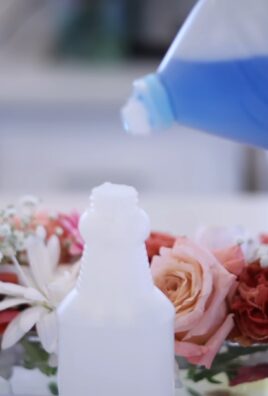
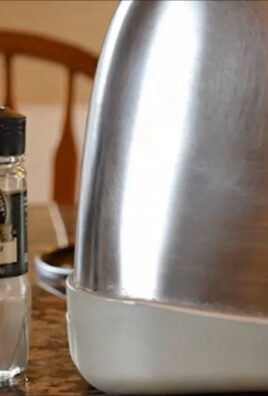
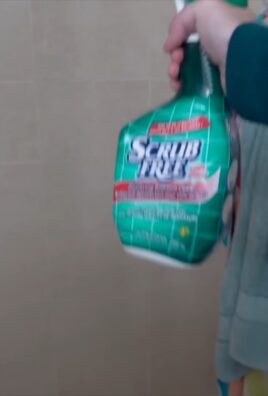
Leave a Comment